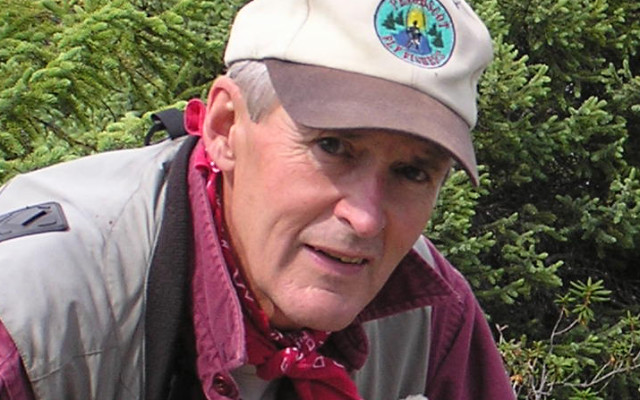
Is this the role of Maine’s fish and wildlife commissioner?
By V. Paul Reynolds
When a recent editorial in the Northwoods Sporting Journal raised the question of whether it was the statutory obligation of Maine’s fish and wildlife commissioner to “break social barriers,” Judy Camuso, the state’s first female commissioner, wrote that her answer was “unequivocally yes.”
The issue was raised when the department held a winter event to attract youngsters and others to learn about the outdoors. A publicity stunt, the presence of two Portland drag queens, was the apparent “hook” that would supposedly attract people for instruction in ice fishing, knot tying and so forth.
Then, just last week, the federal government advised Camuso that one of her “social barrier” initiatives in the hiring process was discriminatory. Significant amounts of grant funding for the Maine Department of Inland Fisheries and Wildlife from the U.S. Department of the Interior would be terminated, unless the policy was withdrawn.
The policy at the center of the controversy was available publicly on the DIF&W website. It reads: “All hiring panels assembled for the review and selection of IFW employees will be comprised of 50% women. In the event there is an uneven number of panelists, organizers shall make every effort to include more women.”
The question haunts: Is it the function of Maine’s Fish and Wildlife Commissioner to engage in social activism, and become, in effect, a champion of women to the point where it resembles discrimination, or disregards merit and disqualifies male employees because of their gender?
The role of Maine’s fish and wildlife commissioner is outlined in statute. The commissioner’s legal and formal mandate is defined by state law and administrative responsibilities. These include:
- Managing Maine’s inland fish and wildlife
- Enforcing game laws and conservation regulations
- Overseeing public safety related to outdoor recreation
- Running the department and supervising its divisions (Fisheries, Wildlife, Warden Service, etc.)
Nowhere in statute does it say the commissioner is responsible for social activism or breaking social barriers. Her job is technical, managerial and regulatory.
To be fair, Camuso’s hands are not tied solely by statute. She can make choices about her personal leadership style. She has chosen to complement her formal duties by engaging in outreach that supports her vision of inclusivity. This is not a requirement, but a voluntary extension of her leadership style.
Camuso’s customers, her constituents, those of us who purchase hunting and fishing licenses, also have a right to have opinions about how our fish and wildlife leader conducts herself and her leadership role.
Having worked for DIF&W and having been privy to the unrelenting parade of issues that come across a commissioner’s desk daily, I am at a loss to understand how she can effectively fulfill her statutory role and at the same time undertake all of the extracurricular intrigue and involvement that falls under the broad heading of social activism.
Regardless, the feds say she has engaged in discrimination, which is a pretty serious charge for someone who sees herself as a champion of inclusivity.
This, combined with the other aforementioned social barrier initiatives, have all the earmarks of a fish and wildlife commissioner hell bent, wittingly or unwittingly, on presiding over the creation of a matriarchy at the once male-dominated Maine Department of Inland Fisheries and Wildlife.
In our unbridled enthusiasm for a cause, most of us can get carried away and lose perspective amid our passion. In my days at DIF&W, Commissioner Camuso would have been called to the governor’s office for a little chat.
Not likely to happen with this governor, who has her own problems with the Feds.
V. Paul Reynolds is editor of the Northwoods Sporting Journal. He is also a Maine Guide and host of a weekly radio program “Maine Outdoors” heard Sundays at 7 p.m. on The Voice of Maine News-Talk Network. He has written three books. Online purchase information is available at sportingjournal.com, Outdoor Books.